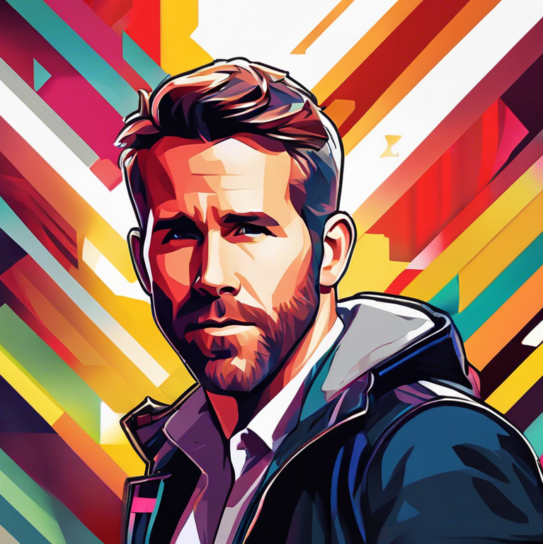Hollywood actors have won a landmark victory in their fight for the rights of performers in the age of artificial intelligence (AI). After a long and bitter strike that lasted 118 days, the actors’ union reached a labor agreement with the major movie studios that grants them new protections and payments for the use of their images in AI-generated material.
The agreement, which covers more than 160,000 actors, singers, dancers, stunt performers, voice artists, and other professionals, was announced on Monday by the Screen Actors Guild-American Federation of Television and Radio Artists (SAG-AFTRA) and the Alliance of Motion Picture and Television Producers (AMPTP).
According to the agreement, movie studios must obtain the consent of actors before using their images in any AI-generated content, such as deepfakes, de-aging, digital resurrection, face-swapping or voice cloning. Actors will also receive residuals, or royalties, whenever their digital doubles appear on screen, regardless of whether they performed in the original production or not.
The agreement also includes safeguards around the use of generative AI to create synthetic actors, which are becoming more realistic and convincing thanks to advances in machine learning and computer graphics. Movie studios must disclose to actors if they intend to use generative AI to create a synthetic performer that resembles them or is based on their performance data. Actors will have the right to negotiate the terms and conditions of such use, including the compensation and the duration of the license.
The new protections are a response to the growing concerns of actors about the potential misuse and exploitation of their images and voices in the digital era. Actors have been worried that movie studios could use AI to replace them, manipulate their performances, extend their contracts, or revive them after their death without their consent or compensation.
The strike, which began on July 15, 2023, was the longest and most disruptive in Hollywood history, affecting hundreds of productions across film, television, streaming, animation, and video games. Actors demanded that movie studios recognize their rights and interests in the use of their images and voices in AI-generated content, as well as improve their working conditions, health benefits, and diversity representation.
The strike ended on November 10, 2023, after both sides reached a tentative agreement that was ratified by the SAG-AFTRA members on Sunday. The agreement will be effective from January 1, 2024, to June 30, 2026.
The SAG-AFTRA president, Gabrielle Carteris, hailed the agreement as a historic achievement for the actors and the industry. “This agreement sets a new standard for the protection and empowerment of performers in the age of artificial intelligence. It ensures that actors have a voice and a stake in the future of their craft and their livelihoods. It also reflects our commitment to innovation and collaboration with our partners in the entertainment industry,” she said in a statement.
The AMPTP president, Carol Lombardini, also praised the agreement as a positive outcome for both parties. “We are pleased to have reached a fair and reasonable agreement with SAG-AFTRA that addresses the challenges and opportunities of the rapidly evolving entertainment landscape. We look forward to working together with the union to foster the growth and success of our industry in the years ahead,” she said in a statement.
The agreement has been welcomed by many actors, who expressed their relief and satisfaction on social media. Some of the prominent actors who supported the strike and celebrated the agreement include Tom Hanks, Jennifer Lawrence, Robert Downey Jr., Scarlett Johansson, Leonardo DiCaprio, Viola Davis, Dwayne Johnson, Chris Hemsworth, Emma Watson, Daniel Radcliffe, Sandra Bullock, Will Smith, Angelina Jolie, Brad Pitt, Meryl Streep, Denzel Washington, Tom Cruise, Nicole Kidman, Reese Witherspoon, Hugh Jackman, Ryan Reynolds, Gal Gadot, Chadwick Boseman, Lupita Nyong’o, Daniel Craig, Idris Elba, and many others.
The agreement has also been applauded by some experts and advocates of AI ethics, who see it as a step forward in the regulation and governance of AI in the creative industries. They hope that the agreement will inspire other sectors and professions to adopt similar measures to protect the rights and interests of workers and creators in the face of AI disruption.
However, the agreement has also been criticized by some critics and skeptics, who argue that it does not go far enough in addressing the ethical and social implications of AI use on screen. They claim that the agreement leaves many loopholes and ambiguities that could allow movie studios to exploit actors and audiences in the name of artistic freedom and innovation. They also warn that the agreement could have unintended consequences, such as stifling creativity, reducing diversity, increasing inequality, and eroding trust and authenticity in the film industry.
The agreement is expected to have a significant impact on the future of Hollywood and the film industry, as well as on the role and status of actors and performers in society. It is also likely to influence the development and adoption of AI technologies and applications in the entertainment and media sectors, as well as in other domains and industries. It remains to be seen how the agreement will be implemented and enforced, and how it will affect the quality and diversity of the content and the experiences that movie studios and actors will offer to audiences and fans.






